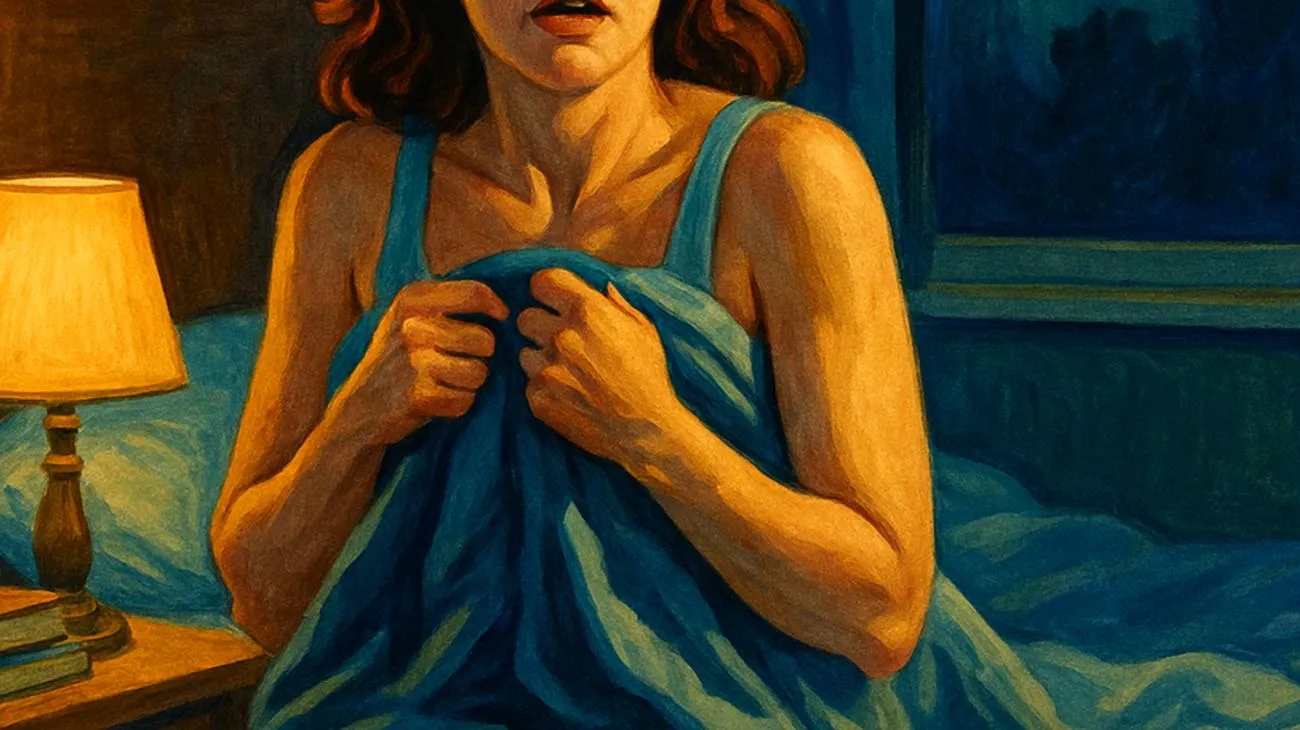Why Do You Keep Having Death Dreams? The Shocking Truth About What Your Mind Is Really Doing
Okay, let’s talk about the elephant in the room that nobody wants to discuss at your morning coffee catch-up: those absolutely terrifying dreams where you or someone you love dies. You know the ones. You wake up drenched in sweat, heart racing like you’ve just run a marathon, and spend the next hour trying to shake off that creepy feeling that follows you around like a bad cologne.
Here’s the plot twist that’ll blow your mind: you’re definitely not alone, and these dreams aren’t trying to ruin your day just for fun. In fact, psychological research has uncovered some seriously fascinating stuff about why our brains decide to put us through these midnight horror shows.
Before you start googling “am I psychic” or texting your mom to make sure she’s okay, let’s get one thing straight: death dreams have absolutely zero connection to predicting the future. According to research published in the International Journal of Dream Research, these dreams are actually your brain’s way of dealing with some pretty heavy psychological stuff that you might not even realize you’re processing.
Your Brain Is Basically Running a Secret Therapy Session While You Sleep
Picture this: while you’re peacefully drooling on your pillow, your unconscious mind is working harder than a student cramming for finals. Dr. Akbari’s research from 2019 revealed something absolutely mind-blowing about recurring death dreams. When people kept having these intense nightmares, their subconscious was essentially forcing them to deal with existential issues they’d been avoiding like that gym membership they never use.
Think of your brain as the world’s most persistent therapist. It’s sitting there going, “Listen, we really need to talk about that major life change you’ve been pretending isn’t happening.” And when you ignore it during the day, it cranks up the volume at night with some seriously dramatic imagery.
Your mind uses death as the ultimate metaphor for transformation. It’s not subtle about it either. When your brain wants to tell you that something in your life needs to end so something better can begin, it doesn’t send you a polite memo. Instead, it creates an entire cinematic experience complete with emotional trauma and cold sweats.
Are You a Member of the “Midnight Transformation Club”?
Here’s where things get really interesting. Not everyone gets the death dream treatment from their subconscious. If you’re part of this exclusive club, congratulations – you might be what researchers are calling a symbolic processor. These are people whose brains prefer to work through complex emotions using vivid, dramatic imagery rather than boring logical analysis.
Research in dream content analysis shows that people going through major life transitions are way more likely to experience these intense nocturnal adventures. So if you’ve been having more death dreams lately, your brain might be trying to tell you something important about the changes happening in your life.
What makes someone more likely to experience these transformation dreams? Several factors seem to play a role:
- You’re going through major life changes: Starting a new job, ending a relationship, moving to a different country, or dealing with family transitions
- You process emotions deeply: You’re the type of person who really thinks about the meaning behind life events
- You’re dealing with unresolved stress: There’s something bothering you that you haven’t fully addressed yet
- You think in symbols and metaphors: Your brain naturally translates abstract concepts into vivid mental images
The Grief Connection: When Your Heart Meets Your Dreams
Here’s something that’ll make perfect sense once you hear it: people who’ve experienced significant losses are way more likely to have death-related dreams. Research by Germain and colleagues in 2013 found that individuals with complicated grief frequently dream about death or deceased loved ones as part of their psychological adaptation process.
But here’s the kicker that nobody talks about: these dreams aren’t necessarily a sign that you’re healing beautifully. Sometimes they actually indicate that you’re struggling more than you realize. The research showed that people with more persistent emotional distress after loss tend to have more frequent and intense death dreams.
This doesn’t mean you’re broken or doing grief wrong. It just means your mind is working overtime trying to help you process something incredibly difficult. Your dreams are basically your brain’s way of saying, “This is really hard, and we need to keep working on it until we figure it out.”
Decoding Your Death Dreams: The Real Story Behind Different Scenarios
Not all death dreams are created equal, and understanding what type you’re having can reveal what your subconscious is really trying to communicate. Let’s break down the most common scenarios and what they actually mean.
When You Dream About Dying Yourself
This is probably the most jarring type of death dream, but it’s also potentially the most transformative. When you dream about your own death, your subconscious is usually screaming that some major aspect of your current life situation needs to end so you can grow.
Maybe you’re stuck in a career that’s slowly crushing your soul, or you’re clinging to a relationship that stopped working months ago. Your mind uses the ultimate symbol of endings – death – to emphasize that change isn’t just a good idea, it’s absolutely necessary for your mental health and happiness.
Dreams About Loved Ones Dying
These dreams often reflect your deepest fears about losing people who matter to you, but they can also represent anxiety about how your relationships are changing. Perhaps your teenager is becoming more independent and doesn’t need you the same way, or your aging parents are requiring more care, or your best friend is getting married and won’t have as much time for your friendship.
Your subconscious uses death imagery to help you emotionally prepare for the natural evolution of relationships and the reality that all connections change over time. This psychological preparation isn’t morbid – it’s actually incredibly adaptive and helps you appreciate your relationships more deeply.
Witnessing Strangers Die in Dreams
When unknown people die in your dreams, you’re often processing broader anxieties about mortality, social change, or world events. These dreams frequently pop up during times of global uncertainty or when you’re confronting your own mortality for the first time in a real way.
The strangers in these dreams represent aspects of yourself that you don’t fully recognize yet, or they symbolize your connection to humanity as a whole. Your brain is working through existential questions about life’s meaning and your place in the world.
Your Sleep Laboratory: How Your Brain Renovates While You Rest
Here’s something that’ll make you appreciate your brain even more: sleep isn’t downtime, it’s renovation time. While you’re unconscious, your mind is actively reorganizing memories, processing emotions, and working through psychological challenges that would be completely overwhelming to handle while awake.
Death dreams represent some of the most intensive construction work your mental renovation crew can undertake. They’re tackling the biggest projects: major identity shifts, relationship transformations, career changes, and those deep existential questions that require serious psychological resources to process properly.
This explains why death dreams feel so emotionally intense and stick with you long after you wake up. Your brain is essentially marking these dreams as important with emotional highlighter, making sure you pay attention to the psychological work being done. The vivid imagery and strong emotional response ensure that the symbolic message gets through to your conscious mind.
Recent neuroscience research has shown that during REM sleep, the brain’s emotional processing centers are incredibly active while logical reasoning areas are much quieter. This creates the perfect environment for symbolic processing of complex life situations through dramatic imagery.
Embracing Your Inner Dream Transformer
If you’re someone who regularly experiences death dreams, you’re actually part of a pretty exclusive psychological club. Your mind has chosen one of the most powerful symbolic languages available to help you navigate life’s biggest challenges and transformations.
Instead of dreading these dreams, try viewing them as evidence of your psyche’s incredible sophistication. You’re not cursed or destined for disaster – you’re equipped with a powerful psychological tool that helps you process change and growth in ways that many people never experience.
Your death dreams are ultimately about living more fully – specifically, about making necessary changes, growing into your authentic self, and refusing to stay stuck in situations that no longer serve you. They’re your subconscious mind’s way of ensuring that you keep evolving instead of getting trapped in comfortable but limiting patterns.
So the next time you wake up from an intense death dream, take a moment to appreciate the incredible psychological work your brain just completed while you slept. Then ask yourself: What transformation is my mind trying to help me navigate? The answer might just unlock the next chapter of your life.
Table of Contents

